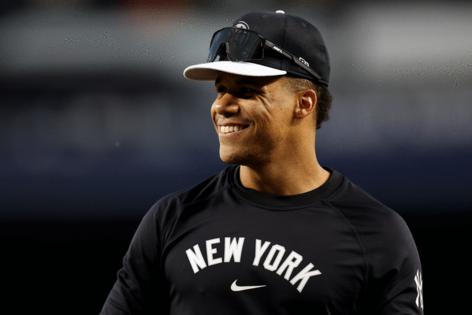Commentary: Are Major League Baseball and immigration reform on a collision course?
Published in Op Eds
The Major League Baseball postseason will culminate days before Americans head to November’s elections. We think league executives will pay close attention to the winners of both contests. One high-profile immigration plan that’s circulating could, at least in theory, keep some international ballplayers out of future playoffs.
Included in The Heritage Foundation’s Project 2025 for a potential Republican administration are calls to overhaul the U.S. immigration system, including mass deportations, capping and phasing down the H-2A visa program, and limiting the use of the H-2B visa. Former President Donald Trump has distanced himself from Project 2025, but this section — which echoes his immigration stances and appeals to national populist sentiment — should be taken seriously.
The H-2 visa programs emerged with the 1986 Immigration Reform and Control Act, which increased enforcement and border security, established penalties for hiring unauthorized immigrants, and provided a pathway for undocumented individuals to obtain legal status and citizenship. The H-2 visa program split into H-2A agricultural worker program and H-2B nonagricultural worker program.
Workers who fall into the H-2 visa categories are employed in construction, landscaping, agriculture, food processing, hospitality, janitorial and other services — including seasonal jobs such as ski instructors, lifeguards, and, yes … baseball players.
MLB players deemed “outstanding” in their profession apply for P-1 or O-1 visas; rookie and minor leaguers apply for H-2Bs as temporary seasonal nonagricultural workers who are required to return to their home countries after the season ends. While the U.S. government does not limit P-1 or O-1 visas, it caps H-2Bs.
Consequently, doing away with or significantly cutting down on the number of H-2Bs would create huge issues for MLB recruitment, growth, expansion, fan viewership, and revenue. Teams would essentially be constrained from bringing in foreign-born players with minor-league contracts — from which MLB stars regularly emerge — along with some coaches, trainers and other staff.
Last season, one-quarter of major-league players and 17% of MLB coaches were foreign-born. That percentage jumps to well over one-third (38%) of all Minor League Baseball players and more than half of players at the lowest minor-league level. Similar to the major leagues, more than half of foreign-born players were from the Caribbean and one-third were from South America. Forty-six percent were born in the Dominican Republic, followed by Venezuela (32%), Cuba (5%), Mexico (4%), Canada (3%), and 28 other countries (10%).
Notable immigrants who started in the minor leagues, particularly the rookie leagues, include Sammy Sosa, Mariano Rivera, Vladimir Guerrero and his son, Vladimir Guerrero Jr., David Ortiz, Elias Díaz, Teoscar Hernández, Ketel Marte, Adolis García, Jorge Soler, Salvador Pérez, Juan Soto and Jeremy Peña.
This isn’t the first time H-2B visas have come under fire. They were limited starting in 2005; however, several months later and with the support of President George W. Bush (a former owner of the Texas Rangers), Congress passed a two-year fix exempting returning workers. This act reallocated the H-2B visa cap, easing the bottleneck in the minor leagues.
MLB will likely seek support again on Capitol Hill to protect H-2B visas, the established talent development pipeline, and fan interest. According to a 2023 Morning Consult survey, Hispanics are among the most enthusiastic MLB fans: 36% of Hispanic adults over age 18 years are avid fans, compared to 24% of white respondents, 15% of Black respondents, and 16% of respondents of another ethnicity.
In 2022, the value of MLB television broadcasting deals was $1.75 billion, with overseas rights comprising nearly 10%. Foreign fans are eager to see players from their countries in the big league. Although 60-70% of MLB overseas/international annual revenue comes from Japan, Latin America comprises 20%. A loss of revenue from these markets would impact business operations, including U.S. baseball academies that are operated by MLB teams in the Caribbean.
Limits on legal immigration have always challenged immigrant-dependent industries like construction, agriculture, and hospitality. A talent-flow disruption would make Major League Baseball—which, despite its struggles to keep up with football, soccer, and other sports, remains a cherished institution—much less competitive.
And if policymakers once again need to protect the national pastime from isolationist immigration policies, maybe the policies themselves are the problem.
____
Marissa Kiss is a postdoctoral research fellow with George Mason University’s Institute for Immigration Research, where she specializes in immigration and sports. James Witte is the director of the Institute for Immigration Studies and an affiliated scholar with the Mercatus Center.
____
©2024 Tribune Content Agency, LLC.




























































Comments